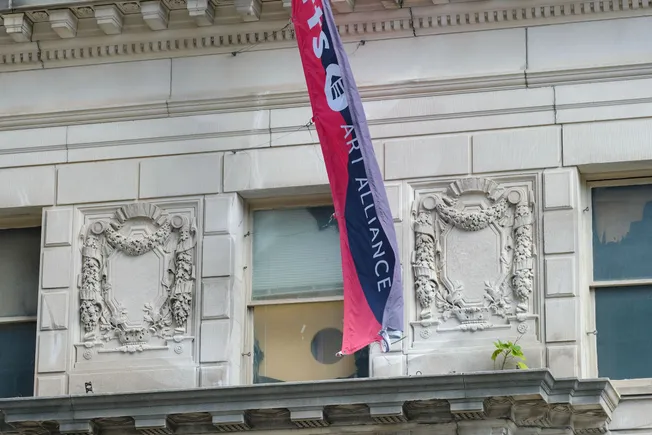However, after his abrupt announcement, they are not bound by party rules to back anyone – even the person he has endorsed.
Loading
Amid uncertainty over whether any other Democrats would seek to challenge her for the candidacy, Harris moved swiftly on Sunday (Monday AEST) to solidify her position as the obvious frontrunner.
She thanked the president for his endorsement, paid tribute to his “legacy of accomplishment”, and declared her “intention is to earn and win this nomination.”
Other influential Democrats soon lined up behind her, from Bill and Hillary Clinton to others who are often mentioned as presidential contenders, such as California Governor Gavin Newsom, Pennsylvania Governor Josh Shapiro and Transportation Secretary Pete Buttigieg.
But should she become the nominee, Harris, and whoever she picks as a running mate, faces several challenges.
Firstly, she would only have a few months to unite the party (some of whom do not support her or believe she can beat Trump) and boost her approval ratings (which have been on par, and sometimes worse, than Biden’s).
Secondly, she faces a barrage of Republican attacks, with Trump’s campaign and their allies already portraying her as Biden’s “enabler in chief”, claiming she had lied about his cognitive decline to the American people. They will also tie her to the administration’s perceived failures, particularly her previous role as its chosen person to tackle the border crisis.
Central American migrants wait for food in a pen erected by US Customs and Border Protection to process a surge of migrant families and unaccompanied minors in El Paso, Texas in 2019.Credit: AP
Thirdly, there’s the unavoidable issue of racism and sexism in politics. In more than two centuries, American voters have elected only one black president – Barack Obama – and never a woman, which has left some in the black community wondering if Harris can buck the trend.
“Will her race and gender be an issue?” said LaTosha Brown, a political strategist and co-founder of the Black Voters Matter Fund. “Absolutely.”
Whether Democrats – and voters more broadly – rally behind Harris is yet to be seen. But Biden, who previously insisted that only “the Almighty” could convince him to drop out of the race, ultimately did the right thing for his party and his country.
By the time his statement was released, almost 40 Congressional Democrats had publicly called for him to step aside.
Democrat stalwarts such as House Speaker Nancy Pelosi and former president Barack Obama were privately warning that the party could lose not only the White House to Republicans but also control of US Congress.
And then there was the spectre of Trump himself: a man who had been impeached twice, indicted four times, criminally convicted for falsifying business records, found liable for sexual assault and civil fraud, and whose refusal to transfer power at the last election led to a deadly coup at the US Capitol.
Loading
And yet, Trump had emerged from last week’s Republican National Convention more emboldened than ever in the wake of his near-death experience, with polls showing him surging ahead in the three key states that will ultimately decide this election: Pennsylvania, Wisconsin and Michigan.
Biden, by comparison, had a legacy of achievement: overseeing the post-pandemic recovery, expanding affordable health care, record infrastructure investment, gun safety reform, and climate change investment.
But he couldn’t stem the bleeding within his ranks or convince enough Americans he had the mental and physical ability to be their president.
In the end, a man who has devoted his life to public service did something Trump has yet to do: place the national interest above his own personal ambition.
Get a note direct from our foreign correspondents on what’s making headlines around the world. Sign up for the weekly What in the World newsletter here.





















Discussion about this post